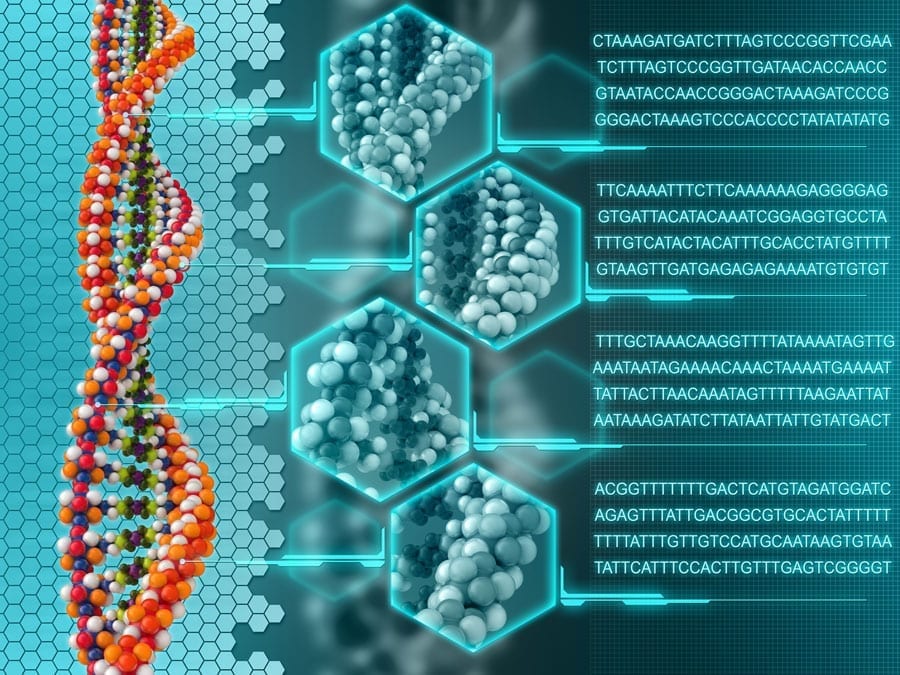Understanding the genetic basis of primary immunodeficiency disorders is essential for their diagnosis, prognosis, and the development of precision therapeutics.
These inborn errors of immunity result largely from inherited genetic defects that perturb immune regulation or function; they are often severe in nature; and are characterized by highly diverse phenotypes such as infection, autoimmunity, auto-inflammation, allergy, and malignancy.
Genomic analysis and experimental validation of genetic variants have been instrumental in the identification of numerous inborn errors of immunity/primary immunodeficiencies to date. More than 400 inborn errors of immunity have been identified in both coding and non-coding regions of the genome, as noted in the “Human Inborn Errors of Immunity: 2019 Update on the Classification from the International Union of Immunological Societies Expert Committee“.
The National Institute of Allergy and Infectious Diseases (NIAID) is supporting research to enable not only the molecular characterization of numerous known and novel inborn errors of immunity but, importantly, also reveal defects in immunoregulatory pathways responsible for the disease phenotype.
In silico prediction models suggest that mutations in more than 3000 coding regions may cause unrecognized inborn errors of immunity, while numerous mutations in non-coding regions also are expected to cause disease, underlining the public health significance in understanding the genetic basis of primary immunodeficiency disorders and reinforcing the notion that hundreds to thousands of these disorders remain unidentified. Furthermore, since these disorders are characterized by a high degree of phenotypic heterogeneity, understanding their genetic basis is essential for appropriate diagnosis, prognosis, and treatment.
Research areas supported by this NIAID grant program include the experimental validation and immunological characterization of:
- Single nucleotide variants (inherited or de novo) in coding or non-coding regions of the genome that cause inborn errors of immunity;
- Insertions or deletions (indels) in coding or non-coding regions of the genome that cause inborn errors of immunity;
- Digenic/polygenic mutations that cause inborn errors of immunity;
- Structural variations (large insertions or deletions, translocations, inversions, or copy-number variations) that cause inborn errors of immunity.
When submitting applications, use of relevant cell types isolated from the patients and appropriate controls (e.g., unaffected family members, healthy subjects of the same ethnic origin etc.) are strongly encouraged for the delineation of the functional consequences of the mutations under investigation. If animal models are used to elucidate the mechanism of disease, a clear correlation between human and animal disease phenotypes should be established. In all cases, preliminary data should demonstrate that the genotype/phenotype correlation recapitulates the patient’s clinical disease.
State-of-the-art technologies and approaches (e.g., iPSC technology, CRISPR/Cas9 gene editing, multi-omics such as transcriptomics, proteomics, epigenetics etc.) are also strongly encouraged.
Notice of Special Interest (NOSI): Molecular and Genetic Characterization of Inborn Errors of Immunity. National Institute of Allergy and Infectious Diseases (NIAID). PA-20-185 – NIH Research Project Grant (Parent R01 Clinical Trial Not Allowed); PA-20-195 – NIH Exploratory/Developmental Research Grant Program (Parent R21 Clinical Trial Not Allowed). This notice applies to due dates on or after February 5, 2022, and subsequent receipt dates through January 7, 2025.



